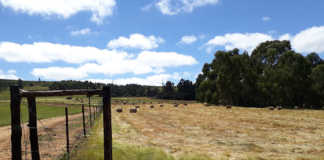The legalisation of the rhino horn trade has been dealt a double blow by the South African and Kenyan governments. Those calling for the legalisation of rhino horn trade to stem the tide of rhino poaching were hoping that the SA government could overturn a CITES (the Convention on International Trade in Endangered Species of Wild Fauna and Flora) ban on horn trade at its Thailand conference in March 2013.
But government missed the deadline to submit a possible proposal, because no decision had been taken yet. “The next opportunity to request that the ban be overturned will be in 2016. We predict that the death toll will rise by 2 000 rhinos by 2016 as a direct result of this missed opportunity,” said Pelham Jones, head of the Private Rhino Owners’ Association.
The association has also requested that a local moratorium on rhino horn trade be lifted, but has yet to receive a response from government.
Furthermore, Kenya has submitted an application to CITES to request that SA’s export quota for legal white rhino hunting trophies, be reduced to zero. Jones said that this would effectively shut down the local rhino hunting industry. “The only reason SA is still going to CITES, is to fight this application. We think Kenya has got a cheek to put in such a request considering its own hunting industry.”
Although making greater strides in the fight against rhino poaching, SA was still largely losing the battle with at least five rhinos poached so far this year. Some 668 rhinos were killed in 2012, up from 448 in 2011. Last year, 267 arrests were made in relation to rhino poaching and 232 in 2011. No arrests have yet been made this year. The Department of Environmental Affairs said that arrests as a result of the illegal killing and trade of rhino and rhino horn were increasing since it was made a priority crime in 2011.
The department was also using legislation to curb rhino poaching and in 2012 published revised norms and standards for the marking of rhino horn and the hunting of rhinos for trophies. These norms and standards bring stricter controls for the issuing of rhino hunting permits, and the transportation of horns. This has resulted in a significant reduction in the number of hunting applications, from 222 in 2011 to 90 in 2012.
In addition, the National Environmental Management Laws First Amendment Bill [B13B-2012] aimed at strengthening the regulatory and enforcement provisions to prevent abuse of hunting permits was at an advanced stage in the parliamentary process. But after consultations with stakeholders, the government-appointed Rhino Issue Management (RIM) team has concluded that “there is no single solution to the rhino poaching scourge. It is quite clear that our efforts will require a range of strategies along several fronts,” said RIM manager Mavuso Msimang.











